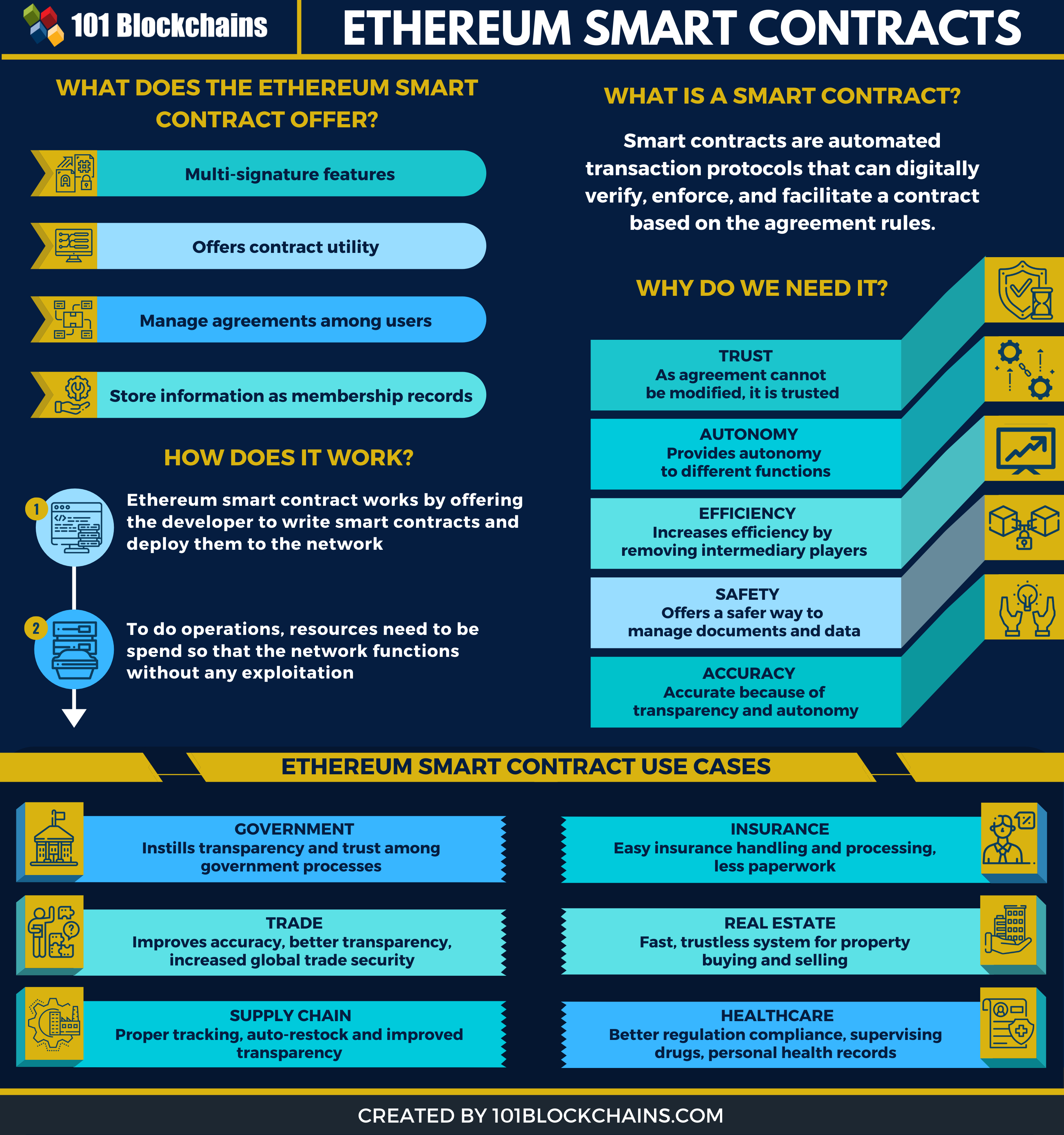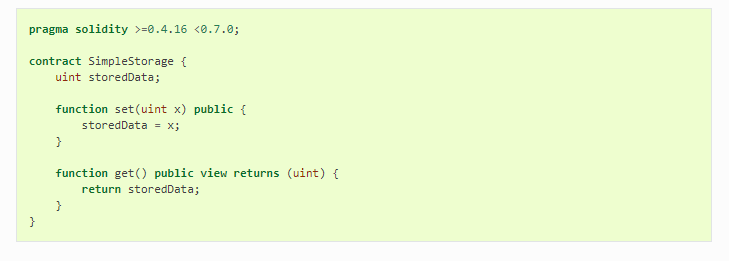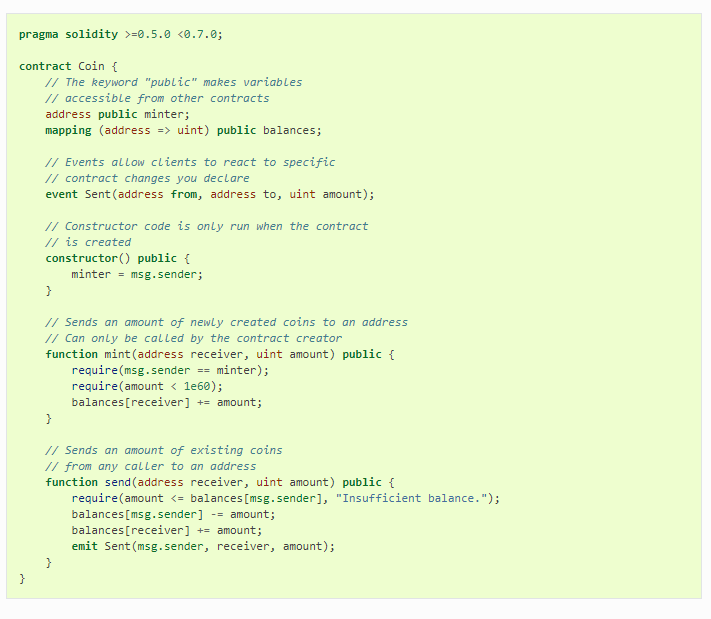Learn how blockchain truly works, master key definitions, and uncover what makes smart contracts so "smart." Dive into the fundamentals, gain valuable insights, and start your blockchain journey today!

- Ethereum
101 Blockchains
- on June 08, 2020
Ethereum Smart Contracts Ultimate Guide
This article offers a comprehensive view on Ethereum Smart Contracts, including — fundamentals behind the concept, features and benefits, functionality, contract development guideline, and real-life use cases.
In this article, we will explore smart contracts in the context of Ethereum. In fact, it was Ethereum that brought the concept of automation via smart contracts. It changed how blockchain technology evolved and helped shape the future of blockchain as a whole.
The rise of blockchain in recent years can also not be denied. Projects like Enterprise Ethereum, Hyperledger, and Corda are at the forefront of bringing blockchain technology to businesses all around the world.
Clearly, the blockchain concept devised from the release of the first cryptocurrency, i.e., bitcoin was not enough to meet the demand of the current generation business. With smart contracts, the new generation of blockchain technology is using different distributed ledger technologies to better suit the demands of different sectors.
Let’s get started by understanding what Ethereum smart contracts or smart contracts in general are.
Excited to build your skill in Ethereum development by leveraging the ethers.js library? Enroll Now in Ethers.Js Blockchain Developer Course!
What is a Smart Contract?
Smart contracts are designed to work as a computer protocol that can digitally verify, enforce, and facilitate a contract without the need to do any paperwork. It is similar to paper contracts but is managed more efficiently and effectively compared to them. The smart contracts are viable to manage transaction performance between parties.
Smart contracts are possible because of the true nature of blockchain, i.e., decentralization. There is no doubt that without the need of the intermediaries, the tasks or transactions carried out by parties can be automated as well.
With no possibility of conflict, blockchain has always been the number one choice for businesses that prefer complete transparency and credibility. That’s why we are witnessing top companies using blockchain technology in recent years.
All of these means that smart contracts can be used to share value in the form of shares, property, or money in a conflict-free, transparent, and decentralized manner. As there is no middleman, the process is also secure and is tamper-proof thanks to the use of blockchain’s immutability feature and cryptography.
Curious to understand the complete smart contract development lifecycle? Enroll in Smart Contracts Development Course Now!
A Simple Context for Understanding Ethereum Smart Contracts
A simpler way to understand it is to compare it with a weight machine. To use the machine, all you need to do is give the machine the necessary input and wait for it to calculate it for you.
There is no middle-man here and is accurate without being tampered with. It is a simple contract between you and the machine.
Smart contracts also work the same way. With it, you do not have to be wary of any third party. In a smart contract, the rules are properly defined along with the penalties or other clauses that the two parties have agreed upon.
This is similar to that of a normal agreement that is done through a traditional contract. However, in smart contracts or Ethereum smart contracts, everything is automated.
Excited to learn the basic and advanced concepts of ethereum technology? Enroll Now in The Complete Ethereum Technology Course
Who Created Smart Contracts and Ethereum Smart Contracts?
The concept of smart contracts came into existence in 1996. It was first introduced by Nick Szabo. He was a computer scientist. With time, he released better versions of it and released multiple publications.
However, the true use was first done in Ethereum where Vitalik Buterin where he worked on the proper implementation of smart contracts.
According to him, a smart contract is a program that utilizes code to determine the owner of the asset and automates the process to do it. If the assets are not assigned to a person, then the refunds are made according to the conditions that are set within the smart contract.
This is a step forward compared to decentralized ledger technology, where the core idea is to replicate and share data without the need for centralized authority. Of course, there are several other differences between decentralized vs centralized networks.
Why Do We Need Ethereum Smart Contracts?
In this section, we will learn why we need Ethereum smart contracts. Just like any smart contract, Ethereum smart contracts come with its own benefits.
-
Trust
Smart contracts instill trust into the whole deal or agreement that is set by parties to do transactions. With smart contacts, no one can modify the documents or change the terms of the contract.
The documents are also stored safely with proper encryption methods without the need for a centralized authority. The encryption methods are slightly different from the typical public-private key-centric cryptography in cryptocurrency as smart contracts don’t have private keys.
The use of smart contracts also brings in trust among the participants without the need to know the other party completely.
-
Autonomy
The use of smart contracts brings in autonomy as it doesn’t need any third-party intermediary party to facilitate the transaction or the agreement.
-
Savings
The use of smart contracts also brings in savings for the parties involved in the exchange. The savings are done by removing the unnecessary estate agents, notaries, assistance, or any other form of intermediaries. In simple words, the smart contract removes the extra fees associated with most of the services out there.
-
Safety
Smart contracts are safe compared to other forms of traditional methods of contract management. Smart contracts are difficult to hack if implemented correctly. After all, they utilize cryptography to do nothing that can be hacked or changed.
-
Accuracy
All the transactions done using smart contracts are accurate and do not have errors considering that the smart contract at the time of creation was well-reviewed before making it live.
Excited to learn about the ethereum developement? Enroll Now in Ethereum Development Fundamentals Course
How Does Ethereum Smart Contract Work? Ethereum Smart Contract Tutorial
In this section, we will go learn how Ethereum smart contracts or smart contracts, in general, works. Before we get started, we need to understand that in the most basic way, Bitcoin supported smart contracts. It did it by providing the network as a way to transfer value from one peer to another. The nodes in the network take care of the validation process.
However, the use of smart contracts is way more than just cryptocurrency.
Let’s take a look at Ethereum. It introduced scripting language (Solidity) and the idea of configuring smart contracts to do more than just transferring values or assets among peers. It allowed developers to create their own programs via smart contracts, which are also known as autonomous agents.
The introduction of Solidity led to the innovation of more scripting languages like DAML which is an open-source language for smart contracts.
Ethereum made it possible to support a wider scope of computational instructions because it is a “Turing-complete.”
So, what do smart contracts are capable of in an Ethereum network? Let’s check it out below.
- The Ethereum smart contracts offer multi-signature features. This means that an account(s) can be created using smart contracts where the expenditure is done based on the people’s agreement in a group.
- It can also be effectively used to provide contract utility, i.e., providing it to other contracts.
- Smart contracts can be used to manage agreements among users.
- Lastly, it can act as a way to store information such as membership records.
Smart contracts also do not work in isolation. To make them functional and manageable, you can have various ways to connect smart contracts and blockchain networks together.
For instance, if a smart contract manages the number of admissions in a school — it will rely on other smart contracts that facilitate admissions, validate them and transfer admissions to the said subject.
Creating Your Own Smart Contract: Ethereum Smart Contracts Examples
Creating your own smart contract is easy. There is a plethora of online resources that you can use to create your own smart contract. One of those resources comes from the docs of Solidity — the programming language that is used to write smart contracts on the Ethereum platform.
Solidity is one of the Ethereum smart contract languages that you can use to develop contracts.
We will also go through an Ethereum smart contracts example below that is taken from the Solidity 0.6.7 documentation.
The above is a storage example where we initiate a variable storedData and then set it publicly using the set(unit x) function. The values are returned through the get() function.
Let’s take a look at the sub currency example.
Here we have the Coin() contract.
In the contact, we have defined the key functions including
- Sent(address from, address to, uint amount) → Used to send amount from one address to another one.
- constructor() → initiates the constructor
- function mint(address receiver, uint amount) → Mints the cryptocurrency
Familiarize yourself with the second-most-popular blockchain network through Ethereum Skill Path
Ethereum Smart Contract Use Cases
There are multiple use cases of Ethereum smart contract use cases. Let’s briefly go through the Ethereum smart contract applications one by one.
-
Supply Chain
Supply chain undoubtedly is the number one use-case for smart contracts. Any supply chain that utilizes Ethereum can take benefit of what Ethereum smart contracts can do. After all, blockchain for supply chain has seen some of the biggest technological leaps in recent years.
For example, a delivery system that uses smart contracts to track the product, the state in which it is, and other key details that were not possible without the use of the smart contracts or ledger system.
Also, smart contracts are capable of automatically ordering things if the supplies are running low. It’s one of the biggest impacts of blockchain on supply chain that benefits large and small retailers in general.
This is a big thing for retailers or online supply chain markets as they do not have to always keep tabs on what to restock, enabling the partners to make the most out of the automated system. One more benefit of using smart contracts is dispute settlement in the supply chain. As everything is tracked, disputes are settled within minutes.
Excited to learn about the supply chain in blockchain? Enroll Now in Enterprise Blockchains and Supply Chain Management Course
-
Government
One of the best use-cases of smart contracts is in blockchain for government. For instance, they can use it for voting purposes which is one of the leading issues in governance.
People want transparency and smart contracts can help the voting systems to provide that. This way, there will be no politics and conspiracy around voting. The ledger-based solution can easily trace votes and ensure that the results are as accurate as possible.
Smart contracts can also improve voter turnout as they can be made to work with a digital identity which does not require filling up forms. Voters can choose to vote through a secure online system — improving the chance to pick a fair government party to power.
Many governments are already working on various projects to implement smart contracts as their vision of blockchain government transformation.
-
Corporate Management
Enterprises can also automate their work processes using smart contracts.
Also, using smart contracts means that there is better trust among the management as the source of information is a single ledger that is constantly updated with new verifiable information. Here, the implementation of distributed ledger technology and smart contracts and go hand-in-hand.
Other benefits include transparency, accuracy, and automated systems. Clearly, there is no point in moving back and forth for approvals and discussions when you have a single source of information distribution that does not rely on a centralized approach.
It improves processing to a whole new level with no dependency on other processes and fewer chances of misinformation sharing and usage. It also takes care of settlements and lawsuits.
-
Automobile and Logistics
Automobile is yet another use-case for smart contracts. The automobile industry can use smart contracts when it comes to self-driving.
The smart contracts can help to find out the faults during a crash or help understand the problems that occur within the car. This can help with automobile insurance and remove fraud from happening.It can also genuinely help users who are affected by a car crash and get their insurance settled really fast!
Blockchain in logistics plays a massive role and a lot of the impacts utilizes smart contracts directly. For example, invoicing and payments, tracking, dispute management, transparency are some of the suitable use cases of smart contracts in the logistics industry.
-
Trade Finance
Very few industries have been affected by blockchain and smart contracts like trade finance. Smart contracts are revolutionizing this industry. The true impact of trade finance blockchain is possible through the implementation of smart contracts only.
For example, parties no longer have to waste time and money on manual paperwork. The terms and conditions of the contracts can be finalized beforehand that can mitigate all kinds of disputes in the future.
Financial institutes (banks) and regulatory bodies can intervene automatically when the terms of the smart contract have been broken by either of the parties.
Want to know more about enterprise blockchains and trade finance? Enroll in Enterprise Blockchains and Trade Finance Course now!
-
Real Estate
Have you ever thought of buying a house and then decide to delay it because of the long process that takes to get one? If you do, then you are not alone. Not to mention, there are verification processes that can take quite a while before you can get ownership of your new house!
All of these can be automated with the help of smart contracts that can govern the whole process of buying and transferring ownership from seller to buyer. The clause can be decided and then coded into a smart contract before it is made live.
Once done, the buyer needs to pay for installments or the payment. Once done, the ownership of the new house will be transferred automatically. None can deny the benefits of using Ethereum smart contracts and blockchain for real estate now.
-
Healthcare
Another Ethereum smart contract use-case is healthcare. Healthcare currently suffers from a lot of problems and hindrances when it comes to providing service to the patients. One of those problems includes storing and maintaining the patient’s personal health records.
The implementation of blockchain for healthcare has a lot to do with a proper utilization of Ethereum smart contracts or smart contracts, in general. As each health provider has its own database and way of managing them, it is hard for service providers to gain access to previous records.
This leads to inconsistencies when it comes to serving patients. Also, without a proper decentralized network, getting insurance can also become a challenge. Smart contracts running on the Ethereum network can solve the healthcare problems by creating a healthcare system where patients’ profiles can be accessed through a decentralized network. It also improves on testing results, regulation compliance, and supervising drug supplies!
Not sure how to build your career in enterprise blockchains? Enroll Now in How to Build Your Career in Enterprise Blockchains Course
Conclusion
Ethereum smart contract is here to stay. They enable blockchain technology to function and automate them without the need for a centralized authority. The fact that there are plenty of use-cases out there for smart contracts makes it even more useful for the businesses out there. The next time you are going to buy the house, then look for a platform that is decentralized and make use of smart contracts.
This way you can automate your buying process by enabling you to automate loan and down payment. Once you complete your payment, the smart contract will automatically transfer the real estate ownership to you!
If you’re more interested in learning about Ethereum smart contracts and other aspects of Ethereum, you should check out the Beginners Guide to Ethereum Development Course!
*Disclaimer: The article should not be taken as, and is not intended to provide any investment advice. Claims made in this article do not constitute investment advice and should not be taken as such. 101 Blockchains shall not be responsible for any loss sustained by any person who relies on this article. Do your own research!








